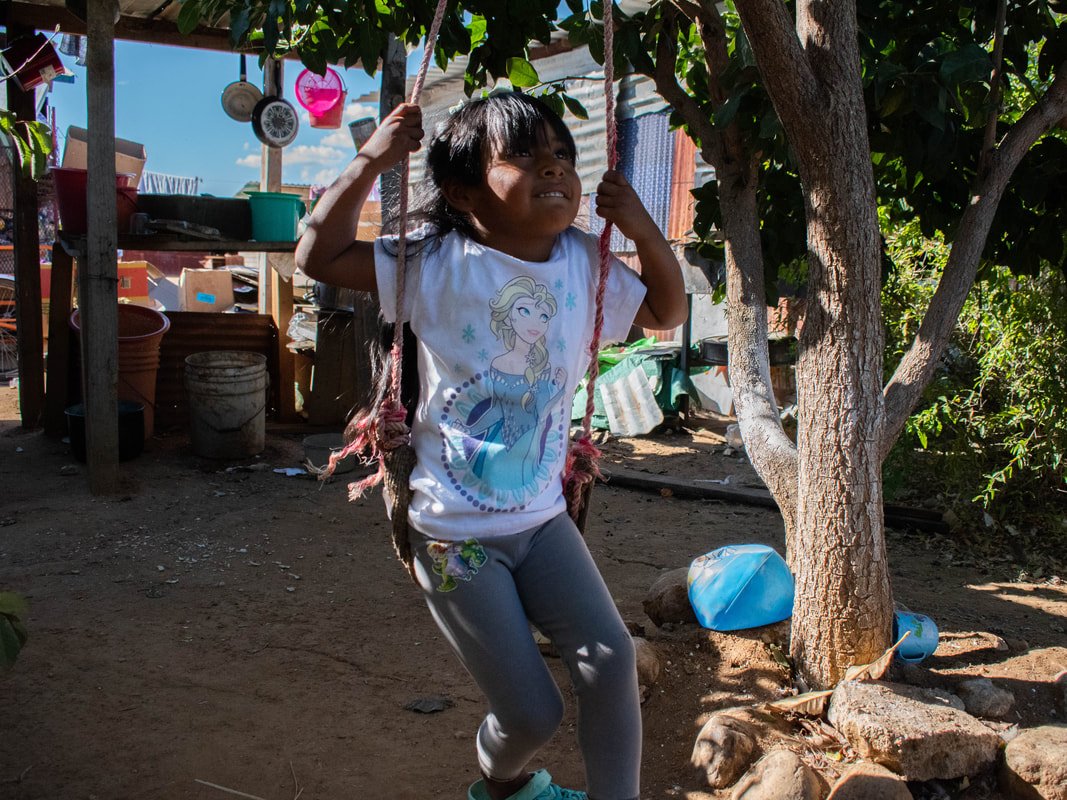As a journalist, one is supposed to believe in the cold, hard facts of a situation. The reality. No bias, no extenuating circumstances. But, after spending three days at the Zaachila household, I sure do believe in something outside of physical existence.
The home we visited in Zaachila was stark in contrast from the previous home in Mirador, occupying much more open land. Instead of one unified home, the Zaachila house was split into a few rooms, scattered throughout the property. What stuck out to me most, though, was their story, and how it affected their everyday lives.
The home was run almost exclusively by the women of the family, including the grandmother, her two daughters, and the children. Most of the men of the house went to the United States to find work. The women washed, cleaned, cooked, bathed and sewed all day long, confiding in each other to get the day’s work done. To fend off any potential burglars and keep the women of the house protected, the Zaachila family owned about a dozen dogs, who would bark frequently. During our three-day stay, only one male made an appearance, who had cerebral palsy that affected his movement.
I found myself gravitating towards the older women of the household, listening to their various stories. The grandmother told us of a time when she was robbed at a market, the thief slashing her purse open, and her side in the process. When asked why she continued to return to the market, she responded that she did not have much of a choice. She had to provide for her daughters and grandchildren, by whatever means necessary.
On the second day of shooting, the family had a service in the comfort of their home. A religious leader conducted an hour-long service with the entire family, reading excerpts from the bible and singing. Throughout the service, I repeatedly heard “gracias padre, por todo lo que das,” translating to “thank you Father, for all you have given us.” Although there was no running water and no electricity, I found it unbelievably amazing that the Zaachila family was not bitter nor infuriated with what they didn’t have. It was humbling to see them thank God for all they did have. I saw happiness in their eyes, and a feeling of purpose throughout the room.
At the end of our stay, as we finalized our photographs and thanked the family for their graciousness, the grandmother of the household began to pray, thanking God for bringing us to her family. It was in that moment that I became overwhelmed with a sense of belief, for I knew in that moment that I was meant to be in Zaachila, in Oaxaca, and in Mexico. I walked out of their home with tears in my eyes, not from pity or gloom, but from a new realization of faith, and a deep trust in our process.




